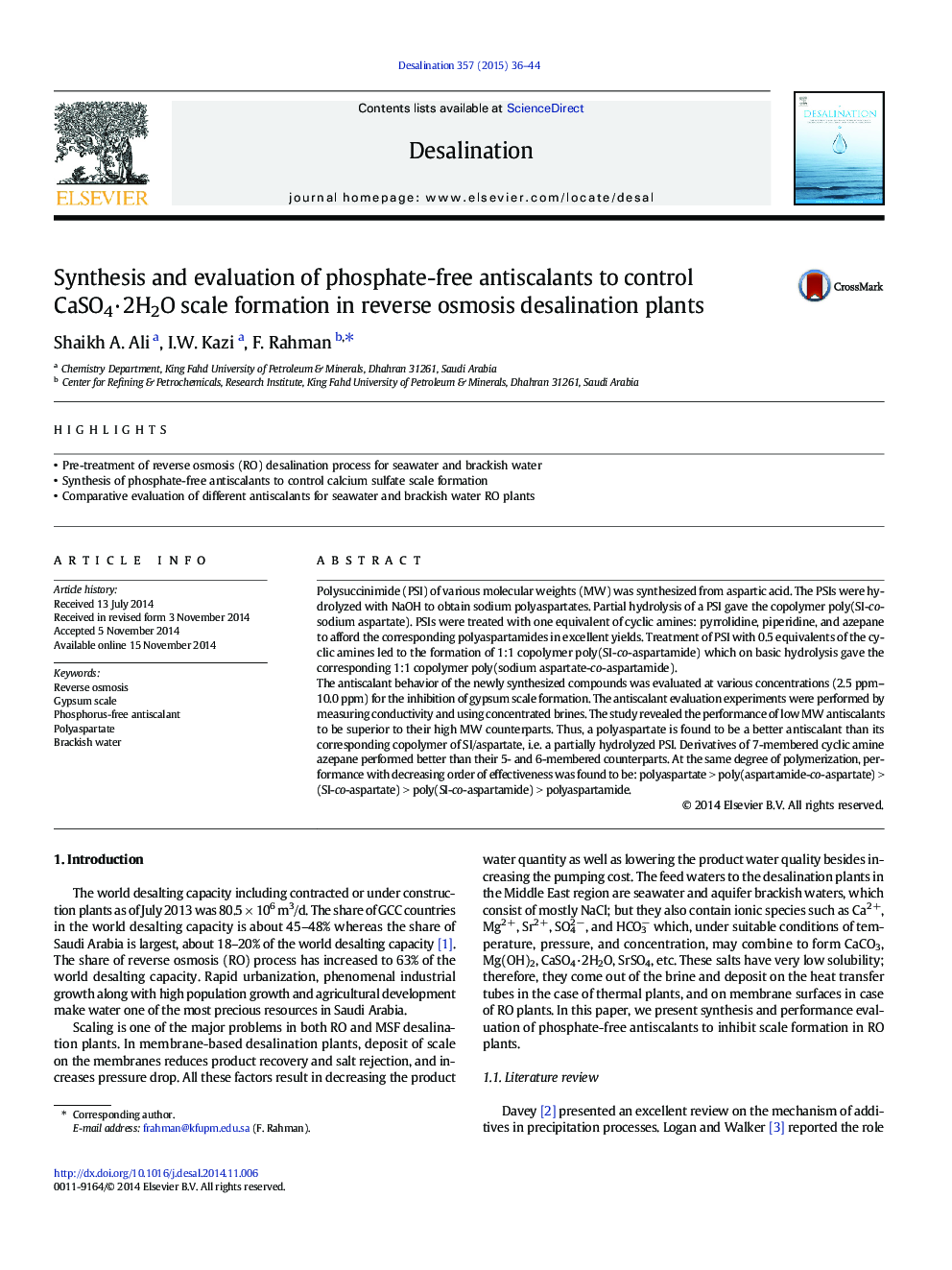| Article ID | Journal | Published Year | Pages | File Type |
|---|---|---|---|---|
| 623314 | Desalination | 2015 | 9 Pages |
Abstract
The antiscalant behavior of the newly synthesized compounds was evaluated at various concentrations (2.5 ppm-10.0 ppm) for the inhibition of gypsum scale formation. The antiscalant evaluation experiments were performed by measuring conductivity and using concentrated brines. The study revealed the performance of low MW antiscalants to be superior to their high MW counterparts. Thus, a polyaspartate is found to be a better antiscalant than its corresponding copolymer of SI/aspartate, i.e. a partially hydrolyzed PSI. Derivatives of 7-membered cyclic amine azepane performed better than their 5- and 6-membered counterparts. At the same degree of polymerization, performance with decreasing order of effectiveness was found to be: polyaspartate > poly(aspartamide-co-aspartate) > (SI-co-aspartate) > poly(SI-co-aspartamide) > polyaspartamide.
Related Topics
Physical Sciences and Engineering
Chemical Engineering
Filtration and Separation
Authors
Shaikh A. Ali, I.W. Kazi, F. Rahman,
